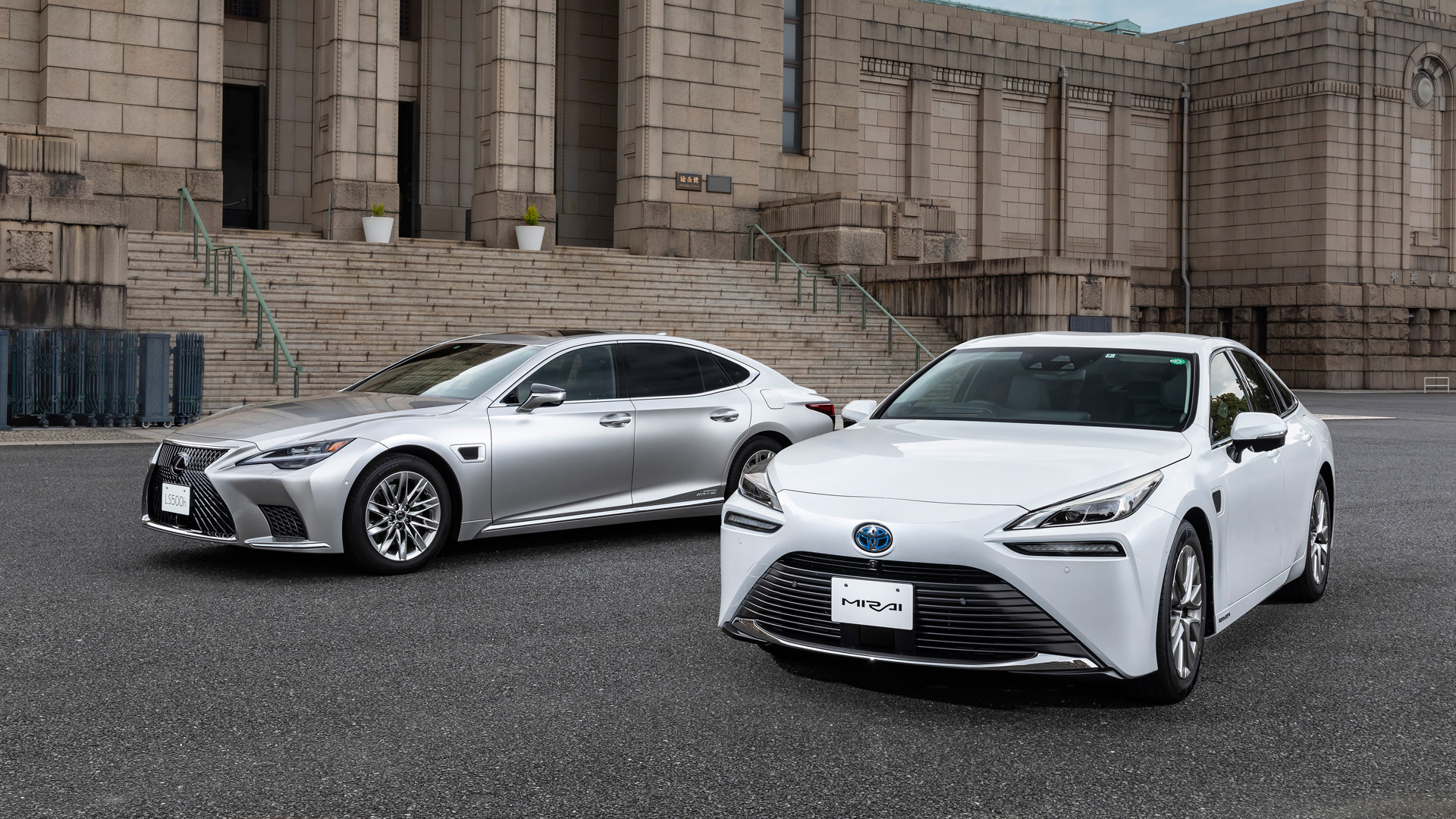

While Toyota has seen success far and wide as an early pioneer of hybrid cars, it’s had much less luck with another technology it has invested heavily in: hydrogen-powered fuel cell EVs. While the rest of the electric car market is going heavily battery-powered, Toyota is still banking on hydrogen power in many ways—even as competitors like Honda and BMW have seemingly dialed down their hydrogen ambitions. Now we know that Toyota’s conservative battery EV strategy and its big bet on hydrogen are closely related issues.
A recent report from the New York Times shows that the company’s hydrogen play has become further reaching than just internal development; it has also become political.

According to the report, a Toyota executive has been traveling to Washington on behalf of the automaker and has taken steps to slow the entire industry’s adoption of electric vehicles. Chris Reynolds, a high-ranking senior executive for Toyota, reportedly has held closed-door meetings with congressional staff members. At least four people familiar with the matter told the New York Times that Reynolds argued against an aggressive rollout of fully electric vehicles, instead urging for a focus on hybrids (like the Prius) and other alternatively-fueled vehicles, like hydrogen-powered fuel-cell EVs.
This all comes at a time when multiple automakers are planning to go fully or mostly battery electric in the years to come, often driven by tightening emissions rules in China and Europe. Toyota, on the other hand, feels incredibly late to the EV game. Despite Toyota’s ambitious recent plans to launch 15 fully electric cars by 2025, it has only shown the world a concept of its upcoming bZ4X while other manufacturers like Audi, Ford, Hyundai, Jaguar, Porsche, Volvo, and Volkswagen all have at least one BEV for sale today.
So if Toyota can persuade lawmakers of the importance of hybrids over EVs and successfully stymie funding for EV-related infrastructure and incentives, it could give the automaker more time to separate from its crutch on hybrids and catch up to other manufacturers. The potential impact of lobbying against BEVs can be seen in the recently proposed infrastructure spending bill, which cuts the government funding for expanding the EV charging infrastructure in half of what was anticipated by President Joe Biden’s staffers to deploy 500,000 EV charging stations nationwide. In addition to doing a potential disservice to American EV adopters, these actions could potentially impede the already full-speed efforts by other automakers pushing towards aggressive EV rollouts.
Recently, Reynolds was named board chair for the Alliance for Automotive Innovation. The alliance is a lobbying organization that represents the interests of many automakers and OEM suppliers, many of which aren’t as heavily invested in hydrogen power or hybrids as Toyota.
In case that group sounds familiar, it also recently fought against consumers in Massachusetts over a right to repair law which could lead to sweeping reform across the nation. One tactic of the group was a video that suggested that women could be hunted down and sexually attacked should it be allowed to pass—and when it overwhelming passed, the video was almost immediately pulled from YouTube. Toyota was the Alliance’s second-largest funder for the fight against the right to repair, donating $4.5 million to lobby against the proposed changes. In fact, that sum was bested only by General Motors, whose current president, Mark Reuss, was the predecessor to Reynolds’ seat as board chair.
In 2019, Toyota and GM (along with Nissan and what was then called Fiat Chrysler) sided with then-President Donald Trump against tighter emission standards. Data from the EPA shows that FCA and GM have the lowest average fleet-wide fuel economy of all automakers as of 2019 and that Toyota’s average mpg has only improved by 0.4 mpg (1.6 percent) in five years’ time. Meanwhile, Honda—which leads the space—has increased its fuel economy by 7 percent, or 1.9 mpg.

Toyota’s long-term strategy is for hydrogen to become more prominent than battery-electric power. In the automaker’s eyes, it just makes more sense as hydrogen vehicles are lighter due to fewer battery cells and refuel faster via the onboard fuel cell. However, the research into FCEVs seems to have slowed Toyota’s actual development of modern BEVs.
“We agree and embrace the fact that all-electric vehicles are the future,” said a Toyota spokesperson in a statement to the Times. They later added that “too little attention is being paid to what happens between today, when 98 percent of the cars and trucks sold are powered at least in part by gasoline, and that fully electrified future.”
This also could all be the result of a sour taste in Toyota’s mouth over the last time it attempted to stay in line with industry trends and launch its legacy-generation electric vehicles. For example, the RAV4 EV with 95 miles of range was originally sold in 1997 alongside the Chevrolet S10 EV and electric Ford Ranger. Toyota collaborated with Tesla to build a second-gen RAV4 EV in 2012, but with a range of just 103 miles, that vehicle was also short-lived. Those crossovers were also only sold in California and to various fleets, so they were never meant for widespread dominance.
Since then, Toyota has played it safe with rolling out new technology to its vehicles, being careful not to build a commuter so ahead of its time that it would outright fail. But in doing so, it may have backed the wrong horse and is now afraid of losing market share by not launching a competing EV early enough to thwart off its competitors. Or, perhaps it truly sees BEVs as a stopgap between hybrids and hydrogen. No matter which is the case, the way to solve the adoption problem isn’t to poison the entire pool.
Know anything about Toyota’s EV and/or hydrogen strategy? We want to talk. Contact the author directly: rob@thedrive.com